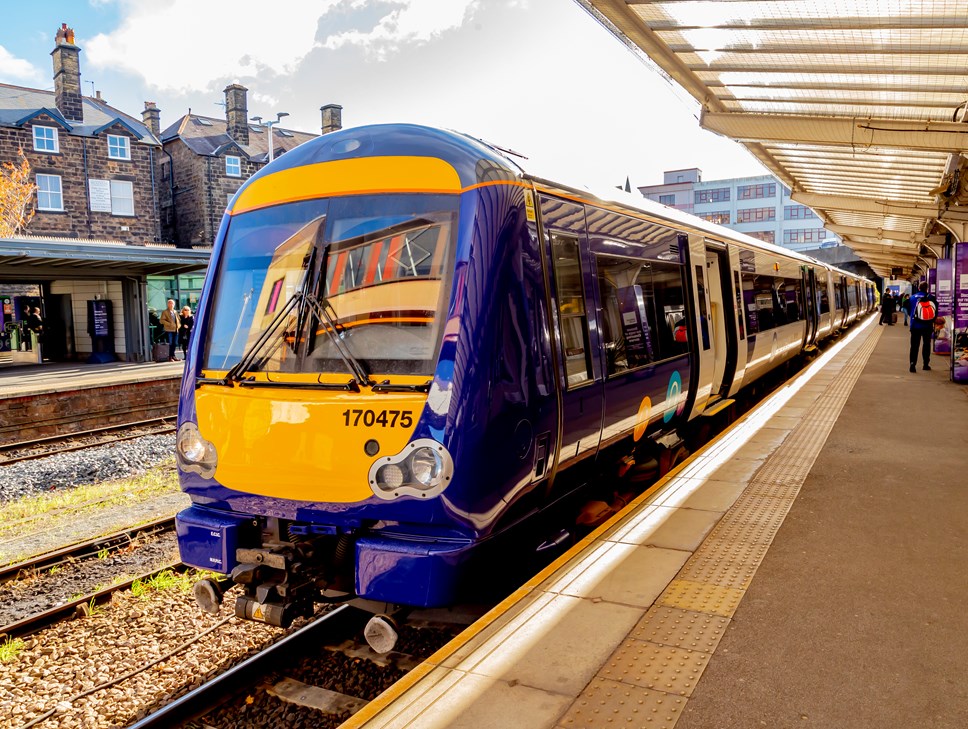
Northern seeks independent inquiry to resolve RMT’s dispute
Northern has formally written to ACAS requesting it to use its powers to establish an independent inquiry into the issues at the heart of RMT’s ongoing dispute with the train operator.
The independent inquiry would look at the future role of the second person that will be on Northern services, in addition to the driver, to help customers with accessibility, security, ticketing, information and any other help required.
The inquiry would also explore the feasibility of Driver Controlled Operation, in which the driver has full operational control of the train, including the train doors.
Northern is calling for the inquiry in a further attempt by the train operator to get RMT involved in discussions to resolve its dispute which is now approaching its second anniversary. The inquiry would have an independent chair and panel members and contributions would be invited from any interested parties.
This Saturday, 22 December, will be RMT’s 41st day of strike action since March 2017. Northern has invited RMT to talks at ACAS on several occasions but without any significant progress being made.
Richard Allan, Deputy Managing Director, Northern, said: “The RMT dispute means customers, businesses and the wider economy in the North have suffered the cost of 40 days of RMT strikes, including every Saturday in September, October, November and now December. Customers, employers and colleagues are looking for both parties to resolve the dispute.
“More than 50% of all rail journeys in the UK are made on driver-controlled trains and recently the Department for Transport and Transport for the North publicly confirmed that a second person – in addition to the driver – would be retained on Northern services.
“This second person will provide customer service, including meeting customer needs on accessibility, safety, security, ticketing and information. Despite this, the RMT continues with its strike action.
“We call on RMT to join us in committing to the inquiry and suspending its industrial action whilst the inquiry takes place. This would demonstrate commitment from both sides to try and resolve the issues, reassuring customers and stakeholders that every endeavour is being made by both sides.”
The inquiry would look at the future role of the second person on the train across the Northern network and explore the feasibility of Driver Controlled Operation, in which the driver has full operational control of the train, including the train doors.
We have promised our conductors that their future role will be on-board our trains, we can guarantee that role until at least 2025, their current pay will be protected (starting salary for conductors is £28,250 pa), and their pay will be reviewed annually, if RMT ends its damaging dispute.
Contact Information
Glyn Hellam
Media Manager
Northern
01904 568652
07795 008693
Glyn.Hellam@northernrailway.co.uk
@northern_pr
Notes to editors
What is an ACAS Section 214 Inquiry?
ACAS has legal powers to carry out inquiries into industrial relations matters and to publish findings. Inquiries can be in general, on a specific industrial sector or on a particular organisation.
What examples of an ACAS Section 214 Inquiry are there?
Over recent years, ACAS has carried out various inquiries under Section 214. Here is an example:
ACAS publishes report findings from the Lindsey oil refinery investigation
What is the source legislation?
Under section 214 of the Trade Union and Labour Relations (Consolidation) Act 1992 (link here):
- ACAS may, if it thinks fit, inquire into any question relating to industrial relations generally or to industrial relations in any particular industry or in any particular undertaking or part of an undertaking.
(2) The findings of an inquiry under this section, together with any advice given by ACAS in connection with those findings, may be published by ACAS if:
(a) it appears to ACAS that publication is desirable for the improvement of industrial relations, either generally or in relation to the specific question inquired into, and
(b) after sending a draft of the findings to all parties appearing to be concerned and taking account of their views, it thinks fit.
What is DCO?
Driver Controlled Operation (DCO) is a mode of operating a train whereby the driver has the capability of controlling the doors and despatching the train away from the platform, assisted by modern technology. The regulator, Office of Road and Rail, recognises DCO as an inherently safe mode of operating a train. The approach is in widespread use across the UK, on over 50% of train services today. Train operators opt for DCO because it is a proven, safe means of operation which can shorten the waiting times in stations, improve punctuality and can help employees to spend more time helping customers.
